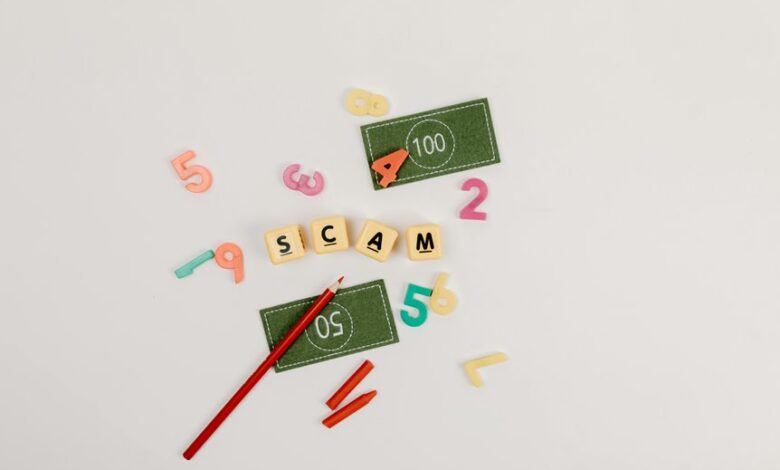Possible Scam Number Check: 3666538008, 3711080579, 3715490833, 3716485983, 3716618567, 3716706530

The numbers 3666538008, 3711080579, 3715490833, 3716485983, 3716618567, and 3716706530 have raised concerns due to their association with potential scams. Common attributes include unfamiliar caller IDs and an unusual volume of incoming calls. Understanding these patterns is essential for assessing their legitimacy. Exploring effective verification methods and precautionary measures could reveal critical insights. What steps can individuals take to safeguard themselves against such threats?
Overview of the Numbers
The analysis of potential scam numbers reveals a complex landscape marked by various patterns and characteristics.
Examining the phone number origins provides insight into their legitimacy, while call frequency patterns indicate possible malicious intent.
Certain numbers exhibit unusual calling rates, suggesting organized efforts to target individuals.
Understanding these aspects is crucial for discerning genuine communications from potential scams, empowering individuals to safeguard their freedom.
Common Characteristics of Phone Scams
Phone scams often exhibit distinct characteristics that can help identify them.
Commonly, these scams involve unsolicited calls or messages that catch individuals off guard, coupled with pressure tactics that create a sense of urgency.
Recognizing these patterns is essential for individuals aiming to protect themselves from potential fraud.
Unsolicited Calls and Messages
Although unsolicited calls and messages can vary in their approach and content, several common characteristics often indicate a potential phone scam.
These include unfamiliar caller IDs, vague or misleading information, and requests for personal details.
Increased scam awareness and effective call blocking techniques are essential for individuals seeking to protect their privacy and maintain control over their communications in today’s digital landscape.
Pressure Tactics and Urgency
While many legitimate calls prioritize informative dialogue, numerous scams employ pressure tactics and urgency to manipulate victims into making hasty decisions.
Scammers often create scenarios that instill fear or excitement, prompting immediate action. This urgency pressure can lead individuals to disclose personal information or financial details without proper scrutiny, showcasing how manipulative tactics exploit psychological vulnerabilities and undermine the desire for personal freedom and security.
How to Verify Phone Numbers
To verify phone numbers, individuals can utilize reverse phone lookup services that provide information about the caller’s identity.
Additionally, consulting online databases can yield insights into the legitimacy of a number, revealing whether it is associated with known scams or fraud.
These methods enhance the ability to discern potentially fraudulent communications.
Use Reverse Phone Lookup
Utilizing a reverse phone lookup service can provide essential insights into the identity behind an unknown number.
By employing effective searching techniques, individuals can discern the legitimacy of calls, potentially revealing information such as the caller’s name, location, and associated addresses.
The reverse lookup benefits include enhanced awareness and empowerment, enabling users to make informed decisions regarding unsolicited communications and potential scams.
Check Online Databases
After employing a reverse phone lookup, individuals may wish to explore additional resources to verify the legitimacy of a phone number.
Online verification tools can provide insights into the identity of the caller. However, users must consider database accuracy, as not all platforms maintain up-to-date records.
Cross-referencing multiple databases can enhance the reliability of the verification process and ensure informed decision-making.
Reporting Scam Calls
Reporting scam calls is a crucial step in combating fraudulent activities and protecting potential victims.
Effective scam call reporting helps authorities track and dismantle networks utilizing fraudulent phone tactics. By documenting details such as caller ID, time, and nature of the call, individuals contribute valuable information.
This collective effort aids in raising awareness and ultimately reduces the prevalence of such deceptive schemes.
Tips for Protecting Yourself
Although scam calls are increasingly sophisticated, individuals can adopt several strategies to safeguard themselves against these deceptive tactics. Maintaining personal security requires vigilance and knowledge. Practicing scam awareness enhances one’s ability to recognize potential threats.
| Strategy | Description |
|---|---|
| Use Call Blocking | Activate features on phones |
| Verify Caller Identity | Ask for details, hang up if unsure |
| Do Not Share Personal Info | Keep sensitive data private |
| Report Suspicious Calls | Notify authorities or platforms |
| Educate Yourself | Stay informed about new scams |
Resources for Further Information
Individuals seeking to bolster their defenses against scam calls can benefit from a variety of resources that provide ongoing education and support.
The following resources enhance scam awareness and consumer protection:
- Federal Trade Commission (FTC) website
- National Do Not Call Registry
- Local consumer protection agencies
- Scam-tracking apps and forums
These tools empower individuals to remain vigilant and informed.
Conclusion
In conclusion, the phone numbers 3666538008, 3711080579, 3715490833, 3716485983, 3716618567, and 3716706530 exhibit characteristics indicative of potential scams, necessitating careful scrutiny. As one might have wielded a quill to discern truth from deception in ancient times, today’s digital landscape demands vigilance and verification. Utilizing reverse phone lookup services and reporting suspicious activity are critical steps in protecting oneself. Awareness and proactive measures remain essential in navigating the complexities of modern communication.




